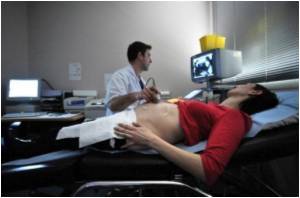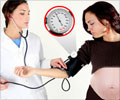
Preeclampsia is a life-threatening condition characterized by high blood pressure and high levels of protein in the urine. It can endanger the lives of both mother and child and is a leading cause of maternal death, researchers said.
"Everything we know about this condition suggests women do not become sick and present with preeclampsia until late in pregnancy, but the condition originates in early pregnancy. To develop effective treatment and prevention strategies - our ultimate goal - we need to be able to start treatment in early pregnancy. We need to be able to tell who is at risk and who is not," said Dr. Louise C. Kenny, the study lead and professor of obstetrics and gynaecology at the Anu Research Center, University College Cork, in Cork, Ireland.
Researchers studied women in SCOPE (Screening for Pregnancy Endpoints), an international trial of approximately 7,000 women with first-time pregnancies which aims to predict and prevent the major diseases of late pregnancy.
In the case control study, researchers first discovered and evaluated the detection rate of the test in women at 15 weeks' gestation with low risk of preeclampsia in Auckland, New Zealand.
The 60 fit, healthy, first-time pregnant women (average age 30) later developed preeclampsia. They were matched with a control group of 60 women.
Advertisement
The researchers are trying to simplify the technology to develop a single blood test for the bedside that will be cheap and readily accessible to hospitals everywhere.
Advertisement
The study has been published in Hypertension: Journal of the American Heart Association.
Source-ANI















